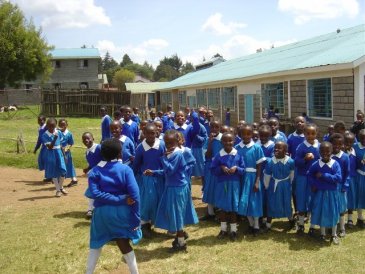These are the key conclusions from the first systematical review of the empirical, quantitative literature on the relationship between education and civil conflict.

School girls in Kenya. Photo: Gudrun Østby / PRIO
Evidence from 30 statistical studies indicate that
- Increasing education levels overall have pacifying effects
- Rapid expansions of higher education is not a threat
- Education inequalities between groups increase conflict risk
- The quality and content of education may spur conflict
- Terrorists are well above average educated
The following policy recommendations emerge from consultancy work conducted for UNESCO’s 2011 Education for All Global Monitoring Report.
We recommend that:
- future research pay increasing attention to sub-national and individual level effects;
- new data be collected to study how conflict is affected by the content and quality of education; and
- policies be implemented so as to reduce educational inequalities.
Read more by following this link to a CSCW Policy Brief
This blog post is published in connection with PRIO’s 2017 Annual Peace Address with Obigalei ‘Oby’ Ezekwesili: ‘Education and Peace‘.